Illinois Miss Amazing Program Accepting Applications
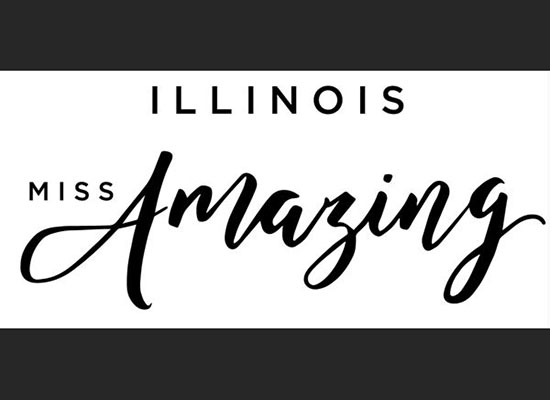
The program provides a nurturing, empowering experience for girls and women with disabilities
Illinois Miss Amazing is accepting applications for its 2022 program.
Miss Amazing is a national nonprofit program for girls and women with disabilities. The program aims to build self-confidence and vital self-advocacy skills for participants as well as nurture a sisterhood of girls and women from different walks of life.
According to the Miss Amazing website, girls and women with disabilities face a unique set of economic, social and political challenges. The Miss Amazing program seeks to encourage future leaders and break down stereotypes by empowering girls with disabilities from a young age to take pride in who they are, to set ambitious goals and to fight for the respect that they deserve.
Miss Amazing is open to girls and women ages 5 and older who have:
- An Individualized Education Program (IEP) or Individualized Program Plan (IPP)
- A 504 Plan
- Supplemental Security Income (SSI)
- A physician’s records proving disability
Illinois Miss Amazing is accepting applications for participants and volunteers for its annual Amplify event on April 9 at the Yellow Box in Naperville. The application deadline is March 1.
The Illinois Miss Amazing experience includes:
- Show rehearsal
- Interviewing
- A fun evening wear presentation
- Sharing your passion and creativity on-stage
- Building friendships
This year’s event is in-person and will feature two shows and one big celebration.
Learn more about the Illinois Miss Amazing program and how it helped one of our participants spread her wings on stage and off at https://dscc.uic.edu/dscc-participant-promotes-illinois-miss-amazing/.
Inspire someone you know to participate in Illinois Miss Amazing.
Applications will be accepted until March 1 or as soon as all spots are filled.
New Law Empowers Adults With Disabilities to Make Their Own Choices

The Supported Decision-Making Act takes effect Feb. 27 and allows individuals with disabilities to make decisions with help from trusted supporters
When making decisions, we all rely on help and advice to choose what’s right for us.
A new Illinois law ensures people with disabilities can get the help they need to make decisions for their own lives.
The Supported Decision-Making Act empowers individuals with disabilities to make their own choices with the right support. It takes effect on Feb. 27.
Research shows that when persons with disabilities have more control over their lives, they experience better health and wellbeing. However, many persons with disabilities have faced unnecessary and restrictive guardianships once they turn 18 simply because of their disability.
Supported decision-making is an alternative to guardianship. It allows individuals with disabilities to identify a supporter. This supporter can help interpret information, weigh options and help communicate the person’s decisions in certain areas as needed.
These areas can include:
- Where to live
- Medical care or counseling
- Money
- Work
- School
- Public benefits and more
An identified supporter is someone the person with disabilities knows and trusts. It can be:
- A friend
- A family member
- A co-worker or colleague
- A person with professional skills
Under the act, the person with disabilities fills out a Supported Decision-Making Agreement. The agreement identifies the supporter and what areas the person with disabilities needs support with.
This agreement ensures that the person with disabilities makes decisions and not the identified supporter.
This process promotes self-sufficiency and control for individuals with disabilities.
Illinois is among several states that have supported decision-making laws in place.
The Illinois Guardianship and Advocacy Commission has many resources to explain the new Supported Decision-Making Act. These include:
- Supported Decision-Making Fact Sheet
- Supported Decision-Making Frequently Asked Questions
- Supported Decision-Making Training for Persons With Disabilities
Family Matters Parent Training & Information Center is also hosting an upcoming webinar on the Supported Decision-Making Act.
The presentation will provide an overview of the law. It will also review the contents of a Supported Decision-Making Agreement and share examples of how supported decision-making works.
The “Supported Decision-Making in Illinois: What Is It and How Does It Work?” webinar will take place at 11 a.m. Feb. 22.
Additional resources on supported-decision making are available in the Guardianship and Alternatives section of our Transition Tools.
Santa Making Sensory-Friendly Stops Statewide

Free Santa visits for children with autism and other special needs
Are you ready for some Santa magic?
Autism Speaks has partnered with Cherry Hill Programs to provide sensory-friendly Santa experiences nationwide.
In Illinois, Santa will be spreading joy and holiday cheer on Dec. 5 and 12.
Join Santa in a calmer, more subdued environment. He is planning stops in communities that include:
- Aurora
- Champaign
- Chicago
- Gurnee
- Moline
- Northbrook
- Orland Park
- Peoria
- Rockford
- Rosemont
- Schaumburg
- Springfield
- Vernon Hills
These sensory-friendly Santa experiences are free. Keepsake photo packages are available to buy.
You can reserve your spot for the Santa experience online. (The organizers strongly encourage reservations.)
For more upcoming holiday events for children with special healthcare needs in Illinois, be sure to check our Special Events page often.
New Law Extends Illinois Early Intervention Services
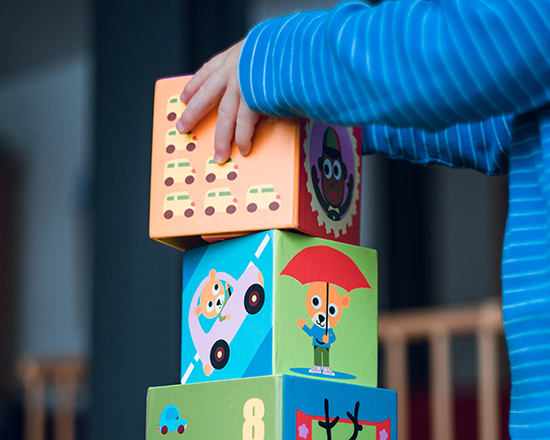
Starting in January 2022, children with summer birthdays may continue Early Intervention services until the beginning of the next school year.
A new Illinois law will stop a gap in services for children with summer birthdays who receive Early Intervention (EI) services.
Senate Bill 820 (Public Act 102-0209) allows children to continue EI services until the beginning of the next school year if their 3rd birthday is between May 1 and Aug. 31.
The law will take effect on Jan. 1, 2022.
The Illinois State Board of Education’s (ISBE) Early Childhood Department explained that this extension of Part C services to children over the age of 3 applies only if the child:
- Reached age 3 on or after May 1 of the current year through Aug. 31
- Enrolled in EI and received services before their 3rd birthday
- Is eligible for preschool serivces under Section 619 of the Individuals With Disabilities Education Act (IDEA) and
- Is found eligible for an Individualized Education Program (IEP) under IDEA and Section 14-8.02 of the School Code
If a child meets all the above criteria, their parents/guardians have the option to remain in EI until the beginning of the next school year or move to early childhood special education services (ECSE) through the school district.
ISBE notes that children enrolled in EI and turning 3 will still need an evaluation, if warranted, and an IEP developed, if qualified, before their 3rd birthday.
If families decide to begin ECSE services, they will not be able to return to EI services once they have ended.
Families can discuss potential eligibility for this extension with their Early Intervention Service Coordinator.
Free Summer Meals for Kids
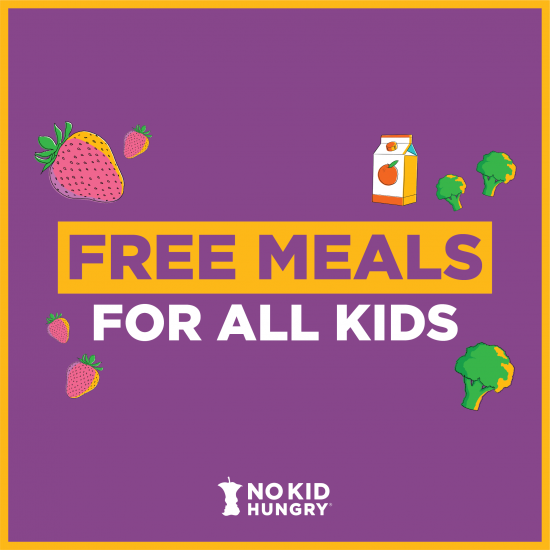
Summer Food Service Program provides healthy meals and snacks to children 18 and under
Many Illinois families depend on their children’s schools to provide regular, nutritious meals throughout the school year. The financial strain of the COVID-19 pandemic makes the need for summer nutrition programs even greater.
Kids and teens can eat right this summer with the Summer Food Service Program (SFSP), which provides healthy meals and snacks to:
- Children and teens age 18 and younger
- Any person 21 years of age or younger with a mental or physical disability that attends an Illinois State Board of Education (ISBE) certified school program during the school year
ISBE runs the program, which is funded by the U.S. Department of Agriculture (USDA).
There is no application or registration required to receive a meal. You also do not have to show proof of income.
To find a meal site near you:
- Call (800) 359-2163 (English or Spanish)
- Text “FoodIl” to 877-877
- Visit www.nokidhungry.org/find-free-meals
Please note that students who receive Pandemic Electronic Benefits Transfer (P-EBT) food benefits can also still pick up grab-n-go summer meals.
Scholarships for Illinois Adults With Spina Bifida
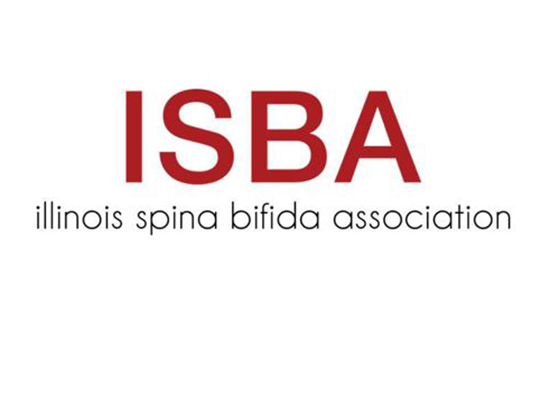
Three scholarship opportunities available
Are you an Illinois adult living with spina bifida and continuing your education?
The Illinois Spina Bifida Association (ISBA) is now accepting scholarship applications for the 2021-22 school year.
Several scholarships are available and may be used for a range of post-high school adult education, including:
- Two- and four-year college programs
- Graduate school
- Online courses
- Technical or trade schools
- Other continuing education opportunities
The ISBA scholarship application is available at https://i-sba.org/programs#scholar.
The ISBA’s three scholarship opportunities are:
- The Patrick Juris Scholarship is awarded to a student with spina bifida preparing for a field of service that helps others.
- The Valiant Scholarship is awarded to a student who displays outstanding leadership, goodwill toward those less fortunate and dedication to making a difference.
- The Mary Mayer Scholarship is in memory of a fiercely independent individual with spina bifida.
For more details about these memorial scholarships, see the ISBA scholarship application.
The deadline to submit scholarship applications is July 17.
For more information, contact (773) 444-0305 or info@i-sba.org.
Summer Camp and Enrichment Opportunities for All Abilities

In-person and virtual activities to help youth with and without disabilities stay engaged and learning this summer
Summer is quickly approaching. And though the COVID-19 pandemic is not yet over, the ease in safety restrictions means more in-person activities will be available for this year’s break from the school year.
If you’re looking for a way to help your child stay engaged and learning, we’ve compiled a list of both in-person and virtual summer camp activities and enrichment programs for youth of all ages and abilities.
Our list of inclusive activities includes daily adventures, arts and crafts, sports camps, college preparation opportunities and condition-specific programs.
Our events calendar shows the activities listed by date. You can also search for programs in your area by clicking on a regional office near you.
For more virtual learning and educational resources for youth, visit the Childcare, Learning and Education Tools section of our COVID-19 Resource Directory.
Know of an in-person or virtual summer camp opportunity to add to our list?
Send us the details at dscc@uic.edu. We’ll continue to update our list of camps and activities, so please check back often.
Free Course On How to Care for Children With a Trach
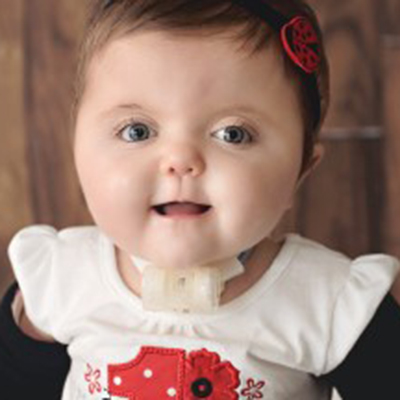
NOTE: please see our updated post “New Training Resources on Caring for Children With Trachs” for the latest information on free training resources on caring for children with a tracheostomy tube.
A free course is available for how to care for children with a tracheostomy (trach) with/without a ventilator.
The course is available online until Dec. 31, 2021.
eHomeCare is an online training program designed to provide comprehensive information for those caring for children with a trach with/without a ventilator.
This training is for:
- Nurses working in home-based environments
- Physicians
- Respiratory therapists
- Family members and caregivers of children with trachs with/without ventilators
- Anyone interested in learning more about caring for this population
The eHomeCare course includes five modules:
- Pediatric Airway and Tracheostomy
- Oxygenation and Ventilation
- Suctioning and Bronchial Hygiene
- Tracheostomy Care and Tube Changes
- Emergency Preparedness
It will take about four to five hours to complete the course.
Free continuing education credits are available.
Learners can use this course for their initial training, an annual review and/or as an ongoing resource.
Participants must create an account and enroll on the eHomeCare webpage.
If you have questions, please contact whitmore.research@son.wisc.edu.
Free Tax Preparation Help for Illinois Families
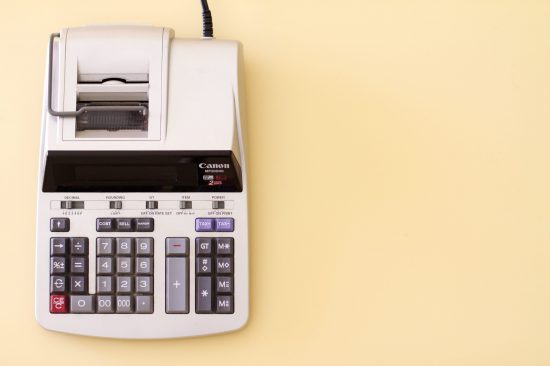
Programs provide help for persons with disabilities, limited English-speaking taxpayers, low-income families and individuals over 60
Free tax help is available for Illinois residents in need through several programs across the state.
The Internal Revenue Service (IRS) and AARP Tax-Aide programs are offering free basic income tax return preparation with electronic filing to qualified individuals in select locations statewide.
The availability of services will vary by region.
“Taxes are due on April 15 this year. If a qualified taxpayer needs help filling out their return, free assistance is available,” David Harris, Director of the Illinois Department of Revenue, said in a news release.
“While in-person assistance is more limited due to the COVID pandemic, certified volunteers are still available to help people over the age of 50 years and working-class taxpayers file their state and federal returns accurately and on time while ensuring the health and safety of taxpayers and volunteers.”
*Note the Internal Revenue Service announced it has extended tax deadlines until May 17.
The IRS Volunteer Income Tax Assistance and the Tax Counseling for the Elderly programs offer free tax help for individuals who:
- Make $57,000 or less
- Have a disability
- Speak limited English
- Are 60 years of age or older
Taxpayers can search for a free tax assistance provider closest to them by visiting the Illinois Department of Revenue’s website at tax.illinois.gov.
The IRS-sponsored Ladder Up Virtual Tax Assistance Program also provides free basic tax return preparation for low-to-moderate-income and elderly taxpayers.
The AARP Foundation Tax-Aide program provides free tax assistance to taxpayers over the age of 50 or who have low-to-moderate income. Availability is determined at the local or community level by appointment only (walk-in service is unavailable this year).
Decisions on whether a site offers an all-virtual, light contact or in-person approach will be based on safety and health data from Johns Hopkins about COVID-19 levels in a community.
The site locator will be regularly updated, and short-notice changes are possible. AARP membership is not required to receive assistance.
See the state’s Free Tax Preparation news release for more information on all available tax help services.
New Funding Available for Assistive Technology
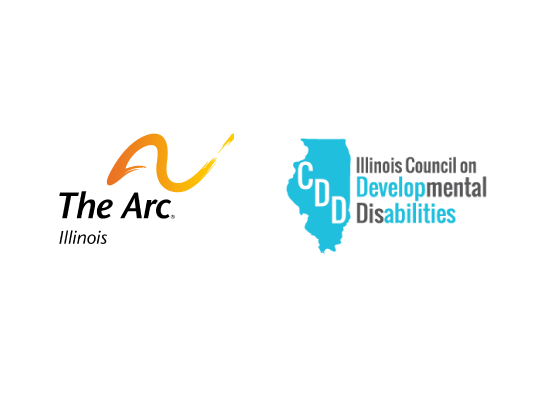
The Consumer Stipend Program provides assistive technology funding for individuals with developmental disabilities and their families.
Most conferences, important meetings and training for people with developmental disabilities and their families have gone virtual.
Grant funding is now available through the Consumer Stipend Program to help these individuals stay connected during the COVID-19 pandemic.
The Arc of Illinois manages the Consumer Stipend Program through a grant from the Illinois Council on Developmental Disabilities. The stipend funds help people with developmental disabilities and their family members attend conferences that are directly related to developmental disability issues.
The Consumer Stipend Program will now allow stipends to pay for the assistive technology needed to attend virtual events.
To apply for the Consumer Stipend Program, an applicant must be:
- An Illinois resident
- A person with an intellectual and/or developmental disability
- A family member of a person with an intellectual and/or developmental disability
- A guardian/foster parent of a person with an intellectual and/or developmental disability
Funding is available for a variety of assistive technology, including:
- iPads and other tablets
- Laptops
- Apps for tablets
- Software
- Other assistive technology that will help people stay connected
Available funds will depend on an applicant’s technology needs. Only one application is allowed per individual or family.
More details about the Consumer Stipend Program and the application process are available on The Arc of Illinois website.
You may also call (815) 464-1832 with any questions about the stipend program.


